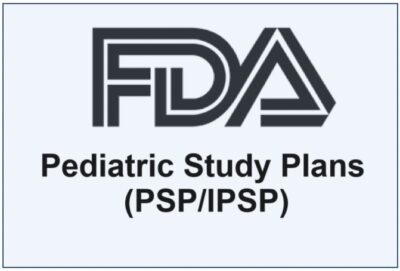How our Regulatory Affairs Consultants Can Assist with FDA PSP/IPSP Pediatric Study Plans
Watch Video- Mastering FDA Pediatric Study Plans
“There’s alot of negotiating with FDA in this process- talk to us, the experts, first.”
“I answer questions like these, review your strategy and streamline your process”
How much detail is required in the Initial Pediatric Study Plan?
What is Expected in the Pediatric Study Plan (PSP) for Your Product?

Susan (O’Brien) Snow BSc, MBA
Regulatory Affairs Expert- 32 Years
Trust Snow Regulatory Affairs Consulting to guide you through every step of the FDA PSP/IPSP Pediatric Study Plans, maximizing your chances of success.
How our Regulatory Affairs Expert Can Assist with Your FDA PSP/IPSP Pediatric Study Plans
As a Regulatory Affairs Consultant serving pharmaceutical drug manufacturers, I understand the complexities and challenges involved in developing and submitting Pediatric Study Plans (PSP) and Initial Pediatric Study Plans (IPSP) to the FDA. Regulatory affairs managers and representatives at pharmaceutical companies can significantly benefit from the expertise and guidance of a consultant to streamline this process. Here are three key ways a consultant can assist with your PSP/IPSP submissions:
1. Comprehensive Content Development for PSP/IPSP
Step-by-Step Approach:
- Initial Assessment and Strategy Development:
- Objective: Ensure a clear understanding of the FDA’s requirements and the specific pediatric study needs for your drug product.
- Steps:
- Review existing data and identify gaps in the pediatric development program.
- Develop a strategic plan outlining the necessary studies and timelines.
- Drafting and Refining Study Plans:
- Objective: Create a detailed and robust PSP/IPSP that meets FDA guidelines.
- Steps:
- Collaborate with your clinical and regulatory teams to draft the PSP/IPSP, incorporating relevant scientific and clinical data.
- Ensure all sections, including background information, pediatric study objectives, and study design, are thoroughly addressed.
- Refine the draft through iterative reviews, incorporating feedback from key stakeholders and experts.
- Regulatory Compliance and Quality Assurance:
- Objective: Ensure the PSP/IPSP adheres to all regulatory requirements and is of the highest quality.
- Steps:
- Conduct a thorough review of the PSP/IPSP against FDA regulations and guidance documents.
- Implement quality control measures to ensure accuracy, completeness, and consistency.
2. Navigating the Submission Process
Step-by-Step Approach:
- Preparing for Submission:
- Objective: Organize and compile all necessary documents and data for a smooth submission process.
- Steps:
- Gather all required documentation, including study protocols, informed consent forms, and investigator brochures.
- Format the PSP/IPSP according to FDA eCTD (electronic Common Technical Document) requirements.
- Create a checklist to ensure all elements of the submission are complete and accurate.
- Submitting to the FDA:
- Objective: Facilitate a seamless submission to the FDA’s electronic submission gateway.
- Steps:
- Utilize regulatory submission software to prepare the eCTD package.
- Submit the PSP/IPSP through the FDA’s electronic submission gateway.
- Confirm receipt and track the submission status.
- Post-Submission Follow-Up:
- Objective: Address any issues or requests from the FDA promptly and efficiently.
- Steps:
- Monitor for FDA feedback and requests for additional information.
- Prepare responses to FDA queries and amendments to the PSP/IPSP as needed.
- Maintain open communication with FDA reviewers to ensure clarity and resolution of any issues.
3. Handling Amendments and Revisions
Step-by-Step Approach:
- Reviewing FDA Feedback:
- Objective: Understand the FDA’s comments and requirements for amendments to the PSP/IPSP.
- Steps:
- Analyze feedback and identify areas requiring amendment or additional data.
- Conduct internal meetings with your team to discuss the FDA’s comments and plan the response strategy.
- Developing Amended PSP/IPSP:
- Objective: Revise the PSP/IPSP to address FDA feedback comprehensively.
- Steps:
- Update the PSP/IPSP with new data, revised study designs, or additional justifications as requested by the FDA.
- Ensure all amendments are clearly documented and justified.
- Conduct a thorough review to ensure all changes meet FDA requirements.
- Resubmission and Follow-Up:
- Objective: Ensure the amended PSP/IPSP is resubmitted promptly and effectively.
- Steps:
- Compile the amended PSP/IPSP and prepare it for resubmission using eCTD format.
- Submit the amended plan through the FDA’s electronic submission gateway.
- Follow up with the FDA to confirm receipt and address any further queries or requirements.
We help you achieve your Pediatric Study Objectives as efficiently as possible
Navigating the complexities of developing and submitting PSP/IPSPs to the FDA can be challenging. However, with the support of a knowledgeable Regulatory Affairs Consultant, regulatory affairs managers at pharmaceutical drug companies can streamline this process, ensure compliance, and increase the likelihood of successful submissions. By providing comprehensive content development, guiding through the submission process, and handling amendments efficiently, a consultant can significantly ease the burden on your regulatory team and help achieve your pediatric study objectives.
8 Practical Tips for a Successful PSP Pediatric Study Plan :
1. Start the internal planning process early
2. Integrate pediatric activities into entire program
3. Allow 4-6 months to prepare (if possible)
4. Make use available resources (guidance’s, templates) and information on EMA & FDA websites (review other pediatric opinions on PIPS and post-marketing pediatric commitments for FDA approved products)
5. Assemble an experienced pediatric development team
- Regulatory affairs
- Pharmacometricians
- Toxicologists
- Formulation scientists
- Clinical
- Project Management
6. Seek external expertise (KOLs, Pediatricians, Specialized CRO)
7. Take advantage of Scientific Advice mechanisms (EMA/FDA)
8. Consider the whole plan (don’t operate in silos)
Connect with Snow Regulatory Affairs Consulting
 In summary, partnering with Snow Regulatory Affairs Consulting to navigate the FDA PSP/IPSP process can greatly enhance your drug development strategy. Our specialized knowledge, strategic planning, and ability to streamline interactions with the FDA will not only expedite the process but also increase the chances of a successful outcome, ultimately bringing your product to market faster and more efficiently. So give us a call today at (714) 553-3736 or visit us online at regulatoryaffairsconsultants.com. For further information or to discuss how I can assist with your specific needs, please feel free to contact me. Together, we can navigate the regulatory landscape and bring innovative treatments to pediatric patients in need.
In summary, partnering with Snow Regulatory Affairs Consulting to navigate the FDA PSP/IPSP process can greatly enhance your drug development strategy. Our specialized knowledge, strategic planning, and ability to streamline interactions with the FDA will not only expedite the process but also increase the chances of a successful outcome, ultimately bringing your product to market faster and more efficiently. So give us a call today at (714) 553-3736 or visit us online at regulatoryaffairsconsultants.com. For further information or to discuss how I can assist with your specific needs, please feel free to contact me. Together, we can navigate the regulatory landscape and bring innovative treatments to pediatric patients in need.
Click here to engage with our regulatory experts and explore with us questions you may have.
It All Starts With a consultation!
We look forward to discussing your needs with you!
For any kind of Regulatory Affairs inquiries, Please call
tim@gotresults.net


